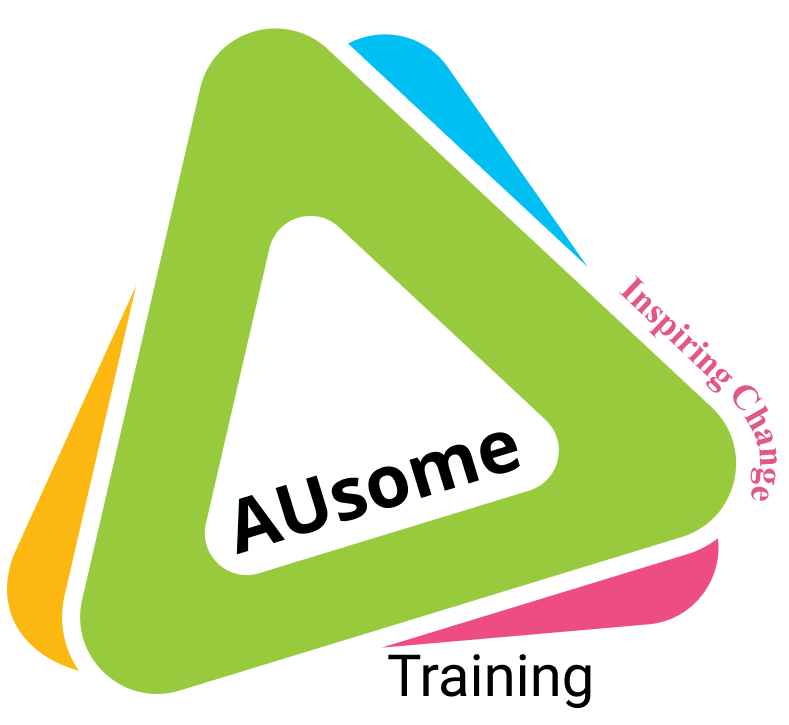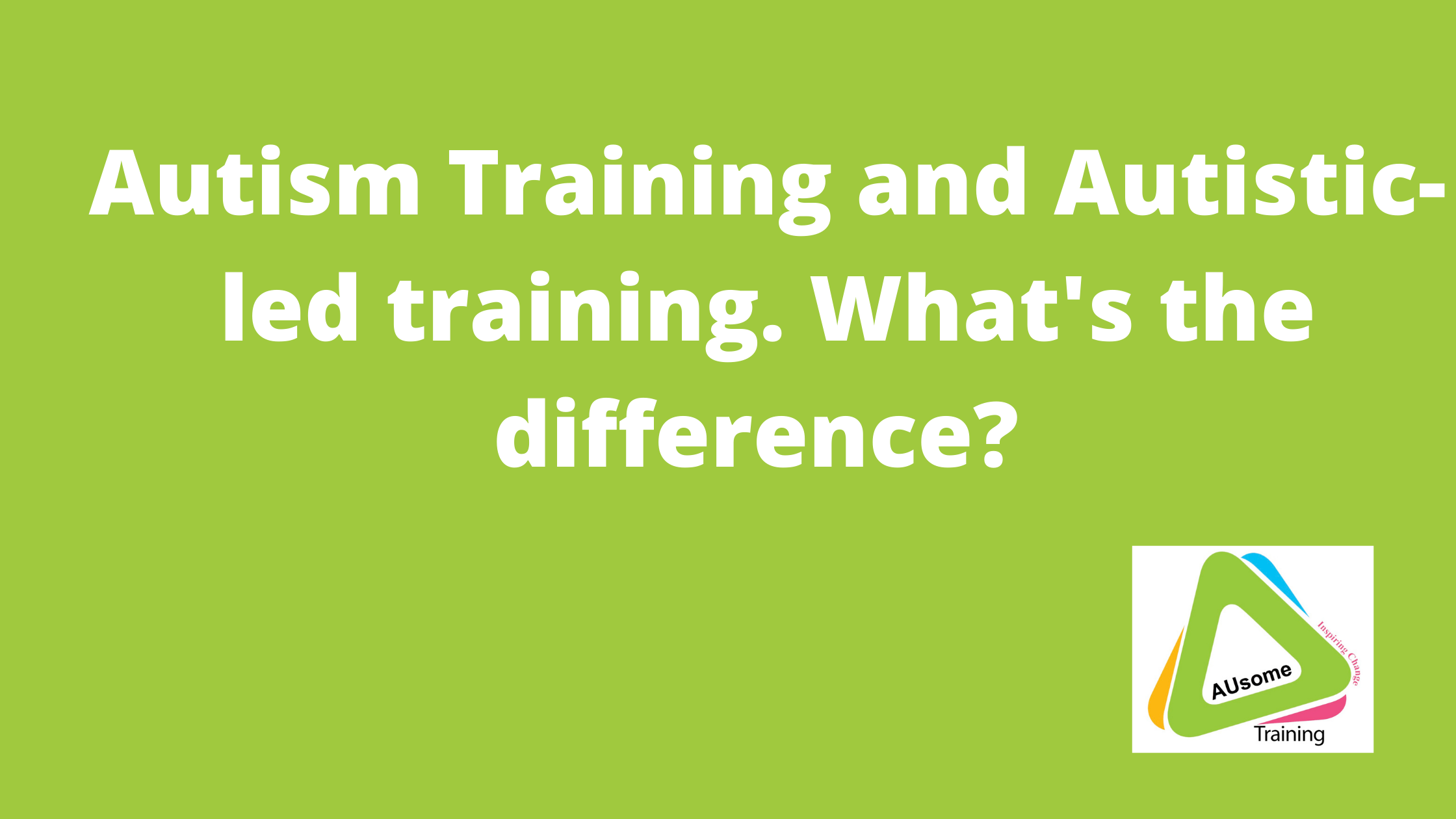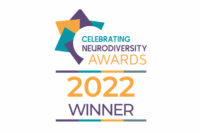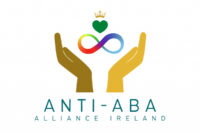You may be totally unaware but most autism training has never actually been fact checked by Autistic people. An alarming thought for sure. What’s missing when we talk about Autism? What are the differences between Autism training and Autistic-led Training? Unfortunately too often it’s the Autistic perspective. When you sign up to Autistic-led training then that means that Autistic people have been involved in its design. At AUsome Training all of our courses are designed, thoroughly researched and delivered by people who are Autistic themselves. We are 100% Autistic-led.
Why do we need The Autistic perspective?
Everything people think they know about autism is based completely on the assumptions of the observer and not the reality for the Autistic child or adult. That means it is not Autistic-led.
When people say Autisticchildren lack ‘social interaction’ they do not see the way the Autistic child actually interacts with everything and everyone in their environment because it may look different to the observer who is basing their assumptions on their own experience.
When we ask Autistic people what they’re doing we get a different perspective and a very different answer. We get the Autistic perspective which is so often missing in autism training sessions where people talk about us without ever actually speaking to us.
What people consider ‘sensory difficulties’ is our way of interacting with our world. Autistics are sensitive so that means we are constantly interacting, responding to, processing and thinking about our environment in ways that less sensitive people are not. And that’s ok, you could not possibly imagine how much of this world we see, feel, love and breathe.
A really good example of the differences between Autism training and Autistic-led Training happened recently at a training event I did with the fabulously positive Jude Morrow, author of Why Does Daddy Always Look So Sad.
Jude spent his early years lining up cars on a windowsill. He was discouraged to do this by well meaning ‘experts’ who saw his play as ‘inappropriate’. This is unfortunately a common response to Autistic play when others do not look for the Autistic perspective. During our training I asked Jude how playing with his cars made him feel.
He said he ran downstairs every day to play, so excited (showing & recognizing emotion)
He spent hours lining up his toys (playing)
He imagined he had a garage like the one in top gear that he watched on tv (social engagement and social replication)
He had to have all the little doors closed just right, just like the tv show (organizational skills)
He enjoyed it. It made him feel happy. It made him feel good.
He copied something from his social environment, replicated it and learnt skills while doing it (the definition of play)
What does the outsider say about an Autistic child just like Jude?
They say this:
This child “with autism” shows signs of inappropriate play, lacks imagination, can’t engage with their social environment, locked in their own world, obsessed with order and need to be taught how to play like the ‘normal’ kids.
Autism Training is the outside perspective. Autistic-led training explains from the inside.
We can choose to listen to the outside perspective and value that over what’s really going on inside the mind of the Autistic child or we can value the Autistic experience. Guess that’s up to whoever is reading this. I too wasted time on autism training events before I came across the Autistic Community and understood the real value in Autistic-led training.
Another example of how autism training gets it wrong was highlighted by Frank Ludwig at our parents conference. Frank presented us with a very different portrayal of Autistic play than is offered in typical autism training. One of the most interesting parts for me was when Frank reminded us that Autistic children and adults think , we think a lot! And thinking is part of playing and is part of learning. Often autism trainers will talk about Autistic children staring mindlessly or spinning a wheel of a toy rather than playing with the toy in a way they deem appropriate. But they make ludicrous assumptions that nothing valuable in going on in the mind of this Autistic child. We think. We think a lot. And I am grateful to Frank for reminding us of that and of the depths of thought within the Autistic mind. This is another reason why Autistc-led training surpasses autism training each time.
Autistics are also regularly accused of lacking empathy, not understanding others, not understanding social cues and so on. None of this is true. Most autism training courses will leave out important theories like Damian Milton’s Double Empathy Theory and important research like that carried out in Edinburgh University which showed that Autistic people are actually really good communicators when communicating with each other. This sort of research confirms what Autistic people have been saying for decades. These ideas and research are at the very centre of AUsome Training because our training is 100% Autistic-led.
Usual comments I receive at trainings is that my approach is very logical and informative. Well yes, I can explain the realities behind all the myths and nonsense ideas that have been put about by the medical model for decades. Don’t get me wrong, I too believed I had all of these deficits but all of that changed gradually when I engaged with learning from other Autistic people. It was the beginning of real discovery for me and that’s why I’m so passionate about sharing that sense of discovery with parents, teachers, teaching assistants and other professionals. It’s important that people have the correct information and useful strategies based on that information. It’s important that people come away with a real understanding of what it is like to be Autistic from Autistic-led training rather than assumptions and false ideas about us from autism training.
If you’ve read this far you might also consider thinking about the adverse effects and damage it does to an Autistic child when the messages they receive are that they’re playing wrong, they’re learning wrong, they’re enjoying wrong… that they are wrong.
Autism Training which is not fact checked by Autistic people and in line with current research and scientific evidence is not only offensive to Autistic people but highly damaging to us and to those who love us. Parents are often robbed of precious time with their children when they focus on teaching them how to play, on ways to engage them and “enter their world” and every other such nonsense. If your autism training isn’t inline with the Autistic Community then it is just a bunch of assumptions made about us by outsiders who never bothered to ask us if what they say about us is true. Autism training is full of pathologised ideas about Autistic people whereas Autistic-led training teaches you about what it’s like to actually be Autistic in this world. Autism training is unfortunately often another layer in the oppression that Autistic people face.



